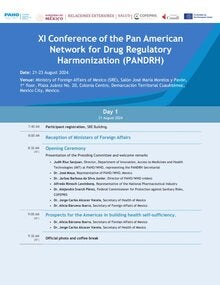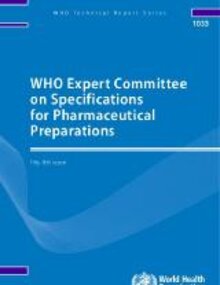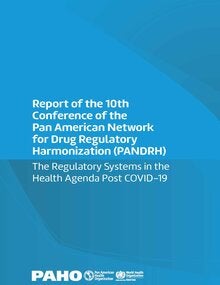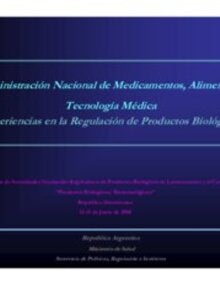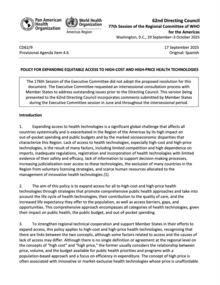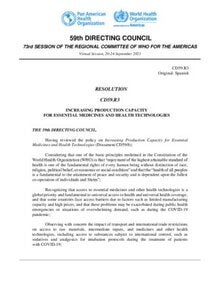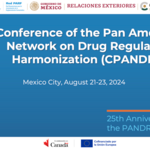Regional Revolving Funds (RRF) of the Pan American Health Organization (PAHO) are collaborative mechanisms that help countries and territories in the Americas to assure quality vaccines, essential medicines, medical devices, In vitro diagnostics and other public health supplies with quality and affordable prices. By pooling demand and leveraging economies of scale, the funds enable Member States to obtain better purchasing conditions in a timely and transparent manner.
The Department of Innovation, Access to Medicines, and Health Technologies (IMT) works with RRF to ensure that all products meet internationally recognized standards of quality, safety, and efficacy through regulatory reliance* and quality assurance approach. This involves rigorous technical reviews of product offered dossiers, verification of regulatory status, and adherence to WHO and UN-recommended frameworks such as the Model Quality Assurance System for Procurement Agencies (MQAS).
Only products authorized by WHO Prequalification, stringent regulatory authorities, or recognized national authorities of regional of reference (NRAr) are eligible for acquisition. IMT also monitors supplier performance, manages product-related claims, and coordinates corrective actions when needed—strengthening accountability and reliability across the supply chain.
This cooperative approach ensures compliance with international regulations, promotes transparency, and safeguards public health. By working together, PAHO and its Member States advance equitable access to safe and effective health technologies throughout the Region.
Failure to establish a robust quality assurance system exposes organizations to significant risks, including the procurement of substandard, falsified, or contaminated health technologies. These deficiencies can lead to product complaints, recalls, financial losses, and severe health hazards for patients. Such outcomes undermine the credibility of procurement agencies, compromise patient safety, and erode trust among stakeholders.
* Regulatory reliance principles: concept note and recommendations. Ninth Conference of the Pan American Network for Drug Regulatory Harmonization (PANDRH) (San Salvador, 24 to 26 October, 2018)
Quality assurance in health technologies plays a critical role in protecting public health and ensuring that populations have access to effective, safe, and high-quality products. Within this framework, PAHO —together with the IMT and through the RRFs— facilitates the establishment of comprehensive systems to support the selection, acquisition, and utilization of health technologies. By implementing coordinated strategies and fostering collaboration, member states are able to collectively oversee and improve the quality and reliability of health products available to their citizens.
PAHO partners with various organizations to help Member States access vital health technologies. Through Regional Revolving Funds (RRFs), the Department of Procurement and Supply Management (PRO), and the Department of Innovation, Access to Medicines and Health Technologies (IMT), PAHO manages demand, procurement, financing, and quality assurance. They also work with WHO.
For more information, visit the links below:
PAHO Strategic Fund - PAHO/WHO | Pan American Health Organization
PAHO Revolving Fund - PAHO/WHO | Pan American Health Organization
Doing Business with PAHO - PAHO/WHO | Pan American Health Organization
External links:
Quality assurance, norms and standards
Expert Committee on Specifications for Pharmaceutical Preparations (ECSPP)





